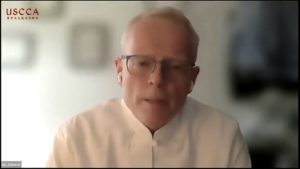
China veteran Ian Johnson, a senior fellow at the Council on Foreign Relations(CFR), looks at how the groups of China dissents abroad, have dramatically changed since the Tiananmen Square crackdown, on the CFR-blog. “Long known for being riven by personality disputes and having little impact back in China, overseas activists now seem more united and more plugged into China than before.” he writes.
Ian Johnson:
An exhibition space commemorating the June 4, 1989, massacre of protesters in Beijing and other Chinese cities opened Friday in New York, highlighting how recent changes in China have rejuvenated its overseas dissident scene.
Long known for being riven by personality disputes and having little impact back in China, overseas activists now seem more united and more plugged into China than before.
That’s in part due to a recent influx of Chinese journalists, writers, artists, and businesspeople who have chosen to leave China’s increasingly restrictive climate. As James Areddy of the Wall Street Journal notes in an article today, New York has become a gravitational point for many critics and skeptics of the Xi Jinping government, fostering an underground scene of Chinese feminist standup comedy, and democracy “salons” where—like in 1989 in Beijing—ideas are floated for how to change China.
One of those spaces is the June 4th Memorial Exhibit in Manhattan. Located on the fourth floor of a small office building on Sixth Avenue, the space is relatively small but features an impressive display of flags, banners, and some historically significant artifacts from the protests, including a piece of calligraphy found on the square after the massacre that reads “Patriotism is Not a Crime,” a mimeograph machine used to spread speeches and information, and a blood-stained banner used to bind the wound of a victim.
Ian Johnson is a speaker at the China Speakers Bureau. Do you need him at your meeting or conference? Do get in touch or fill in our speakers’ request form.
Are you looking for more political experts at the China Speakers Bureau? Do check out this list.